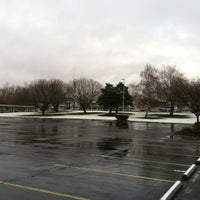


Oregon’s bill aimed to avoid that pitfall, asserting that a city’s ordinances and practices must be “objectively reasonable” based on the circumstances. Boise who support broader rights for homeless people say the ruling is a low bar for states to comply with, namely because it creates an impetus for cities to create more shelter beds so they can justify criminalizing homelessness. “You’re not getting a citation or a court date because you’re camping.”Ĭritics of Martin v. ‘We’re not punishing you by moving you out of the sidewalk, we’re cleaning the streets,’” Chavez explains. “What the city has endeavored to do is make this a health and safety thing, and not a punishment thing. So the most likely outcome is that Portland can still sweep homeless camps from public property so long as it doesn’t arrest or fine the people living there.Ĭivil rights lawyer Juan Chavez told WW that the health and safety angle is one cities have used to justify sweeps. “The court ruling and the bill require local communities to refocus on where, when and how people can survive in public spaces.” “While this bill does not ban sweeps, the expectation is that its implementation will limit them since it ensures that individuals experiencing homelessness are protected from fines or arrest for sleeping or camping on public property when there are no other options,” Kotek’s office tells WW. And while Kotek may wish for cities to comply with a larger moral framework underlying the court ruling, that’s not what her bill mandates. The city is arguing that it’s already in compliance with the Martin v.
#PORTLAND EXPO CENTER HOMELESS CAMP UPDATE#
That ruling applies to other Western states, including Oregon-but cities have argued that their current practices don’t conflict with the ruling.Īnd on Thursday, after the bill passed, Kotek told WW, “My hope is that local governments that have not yet reckoned with the Boise decision will take the opportunity to engage in a transparent, public process to update their ordinances, find ways to expand their shelter capacity, and make the rules clear for all.”īut it’s unlikely the bill will prevent sweeps of Portland homeless camps come July 2023, when cities are required to have codified their policies and ordinances in compliance with the bill. 9th Circuit Court of Appeals decision that bans governments from criminalizing living in public spaces if the local government is not providing enough shelter beds for each homeless person. The bill was written in the spirit of the Martin v.

Sponsored by House Speaker Tina Kotek, House Bill 3115 mandates that cities codify ordinances that protect people from fines and fees for camping on public lands if the local government isn’t providing any other viable alternatives.Ĭities have two years to codify those reworked ordinances. The Oregon Senate on Wednesday passed a bill that would allow tents to be pitched on public land without the threat of being criminally punished. (Wesley Lapointe) By Sophie Peel Jat 5:37 pm PDT SE Homeless by Wesley Lapointe_bike tent Brookside Wetlands.


 0 kommentar(er)
0 kommentar(er)
